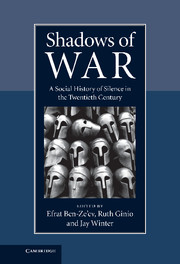Book contents
- Frontmatter
- Contents
- Notes on contributors
- Preface and acknowledgments
- Part I Framing the problem: Multi-disciplinary approaches
- Part II Europe
- Part III Africa
- Part IV The Middle East
- 9 Facing history: Denial and the Turkish national security concept
- 10 Imposed silences and self-censorship: Palmach soldiers remember 1948
- 11 Forgetting the Lebanon War? On silence, denial, and the selective remembrance of the “First” Lebanon war
- Index
- References
9 - Facing history: Denial and the Turkish national security concept
Published online by Cambridge University Press: 04 May 2010
- Frontmatter
- Contents
- Notes on contributors
- Preface and acknowledgments
- Part I Framing the problem: Multi-disciplinary approaches
- Part II Europe
- Part III Africa
- Part IV The Middle East
- 9 Facing history: Denial and the Turkish national security concept
- 10 Imposed silences and self-censorship: Palmach soldiers remember 1948
- 11 Forgetting the Lebanon War? On silence, denial, and the selective remembrance of the “First” Lebanon war
- Index
- References
Summary
In September 2005, Turkish intellectuals who questioned the Turkish state's denial policy on the deportation and killings of Armenians during the First World War gathered for a conference in Istanbul. Outside, in the streets, demonstrators also gathered in protest against the conference. One of the placards read: “Not Genocide, but Defense of the Fatherland.” Two parallel points of view are at work here, one referring to the past, the other to the present. Both the events of 1915 and the denial policy nine decades later are framed in terms of Turkish self-defense.
One may well ask why demands from inside and outside the country, that Turkey come to terms with its past, are so vehemently rejected. In Turkey today, any attempt to open a discussion of historic wrongs is denounced as a covert move in a master plan to partition the country. Why is facing history seen as a threat to national security?
Before answering this question, I have to add that this is not just the view of the political elite, but also underpins legal decisions. In a recent judgment against journalists Arat Dink and Sarkis Seropyan, who received a suspended sentence of a year in prison, for using the term “genocide,” the Turkish court stated that: “Talk about genocide, both in Turkey and in other countries, unfavourably affects national security and the national interest.
- Type
- Chapter
- Information
- Shadows of WarA Social History of Silence in the Twentieth Century, pp. 173 - 180Publisher: Cambridge University PressPrint publication year: 2010
References
- 3
- Cited by



